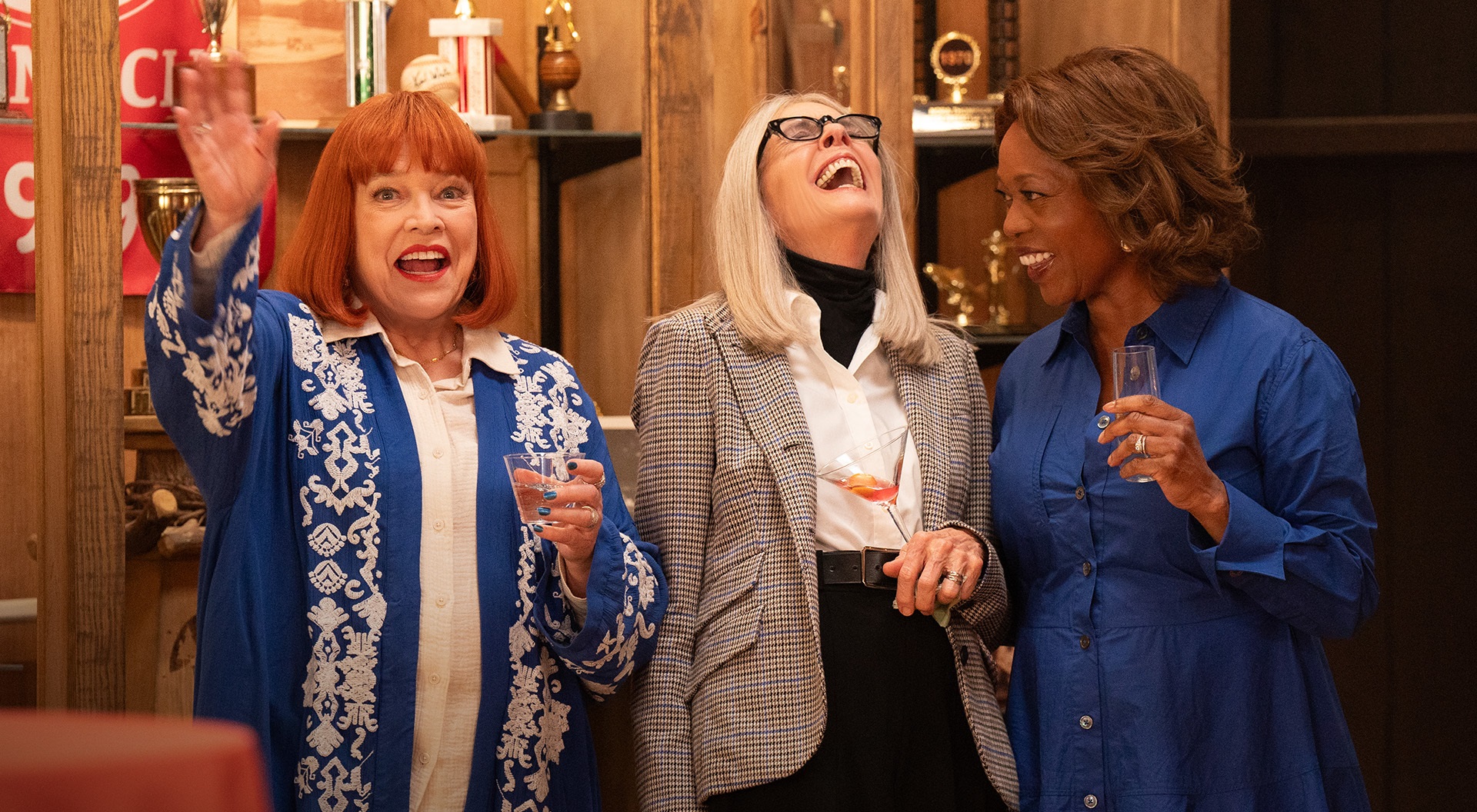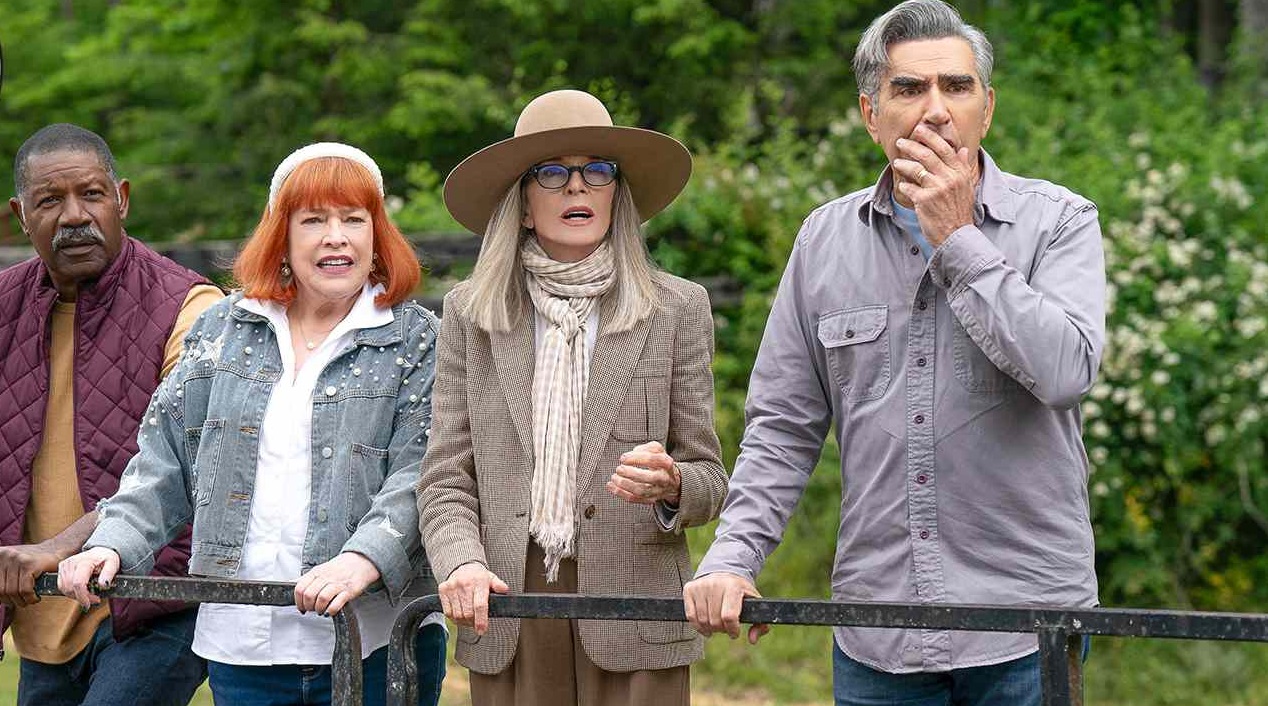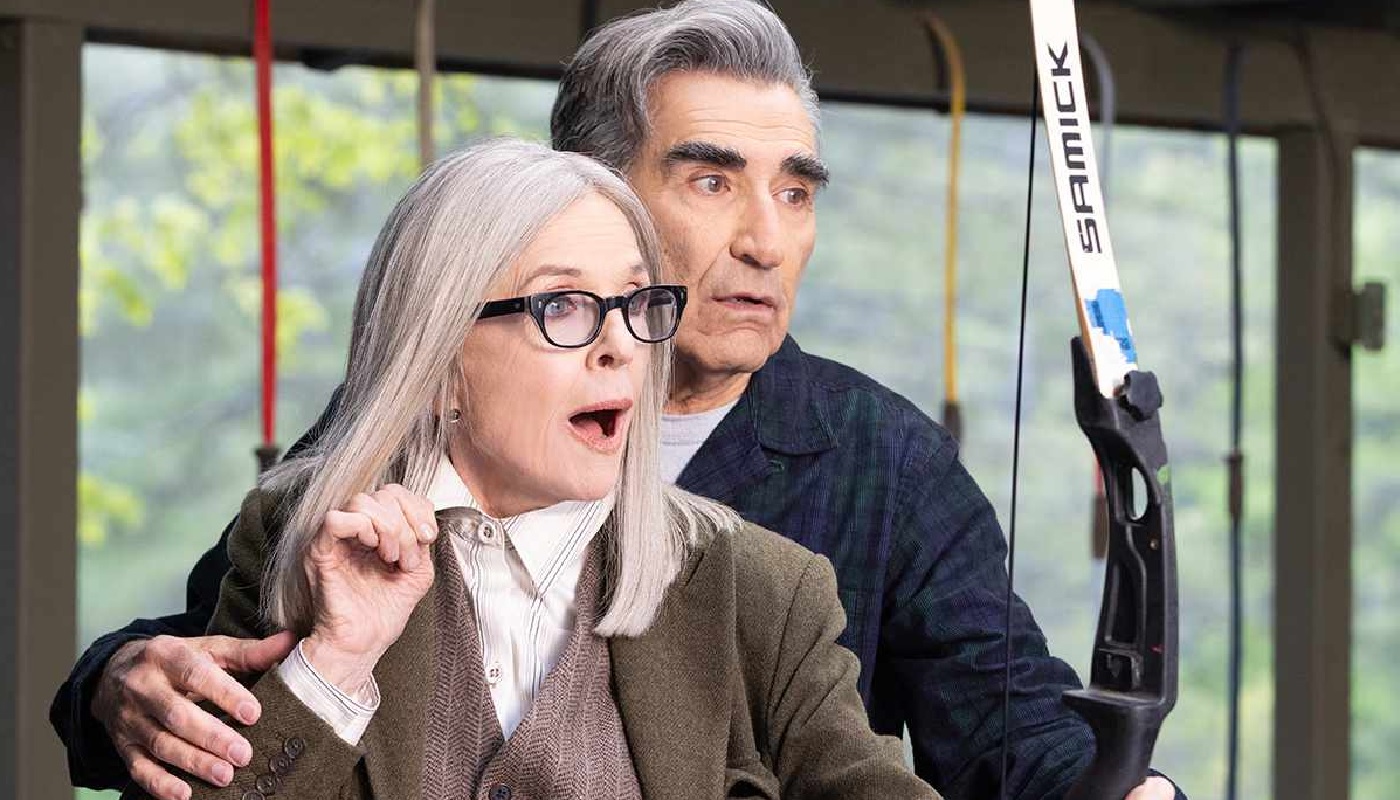‘Summer Camp’ is a comedy movie that revolves around lifelong friends Nora (Diane Keaton), Ginny (Kathy Bates), and Mary (Alfre Woodard), who reunite to spend some time together at a camp. Seeing each other after decades, the friends embrace this opportunity to rekindle their friendship. Even though they do not share the enthusiasm of one another like before, the three are taken aback by the magic of summer camp, which takes them on a rollercoaster ride of nostalgia and life lessons. Directed by Castille Landon, the comedy is driven by the compelling performances of an ensemble cast that comprises the leading trio as well as talented supporting actors like Eugene Levy, Victoria Rowell, and Josh Peck.
On the surface, the comedic angle of ‘Summer Camp’ corners it into an old-school venture that centers on three friends finding themselves amidst the hilarious and adventurous atmosphere of a camping trip. However, the story isn’t that dense in and of itself. It touches upon serious and dramatic elements, including friendship, nostalgia, long-lost romance, and even—more prevalent than ever—work-life balance. All of these elements stuff it with realism, leaving viewers guessing if the movie is based on real-life experiences.
Summer Camp is Not Based on a True Story
‘Summer Camp’ is not headlined to be based on, or even partially inspired by, the experiences of its writer-director, Castille Landon, cast members, or other crew members. Considering the generational difference between Landon, who wrote ‘Summer Camp’ in her early 30s, and the primary cast—baby boomers—it is further evident that the screenplay does not seem to be rooted in reality. With that stated, Landon successfully manages to grasp the understanding of the present-day struggles of older generations, layering the characters with numerous flaws, insecurities, and quirks in her story.

Even in its most comedic scenes, the buddy comedy plays around with various modern-day tropes, including the incapability to live without electronic devices. What makes ‘Summer Camp’ stand out is its family-friendly humor woven with realistic, relatable elements. The narrative captures the essence of lifelong friendships and the bittersweet passage of time, reflecting experiences that targeted audiences can’t help but resonate with. The movie opens with Nora, Ginny, and Mary disembarking from a pink bus, seemingly leaving their everyday worries behind, though temporarily, and re-entering that phase of life when they could be “gals.”
As it often happens with long-awaited reunions, the besties echo, “Nothing has changed,” only to be followed by conflicts; albeit this time, they have supposedly gathered sufficient experience in their lives to put the differences aside and treasure every moment they share, including the bummers. This is also when the plot begins drawing authenticity to it and commentates on aging and the pursuit of lost youth. Hinting at a later-life crisis, the protagonists attempt to utilize the little time they have to both create and recreate memories. Age may not seem to be on their side, but the power of friendship nevertheless gives it every shot.
Nora, who brings some pending work to the camp, particularly feels pressure to prevent her from spending quality time. She is also revealed to be suppressing guilt for neglecting her friends over the years. To make matters worse, she experiences peer pressure from fellow travelers, and even her body—not what it used to be in her youth—fills her up to the head with insecurities. Eugene Levy stars as Stevie D, entering the camp as an old flame of Nora, briefly turning the script into a teenage romance with scenarios that, while exaggerated for comedic effect, mirror the genuine, often chaotic dynamics of meet-cutes.

Landon smartly puts her own version of “plastics” from ‘Mean Girls’ into the mix, except these still demean their rivals after decades of growing up. Raising the insecurity factor is the plastics’ enthusiasm as they enter each activity rather effortlessly, thanks to—as put in words by Ginny—their buttcheeks that act like “floatation devices.” For her small role, actress-singer Eugenie Bondurant joined the set after most of the filming had already been wrapped. Following a last-moment casting, Bondurant was encouraged by Kathy Bates, her longtime friend, to hang out at the set—an actual camp in Hendersonville—for another week, thus mirroring the premise of the film.
Landon has also discussed how the film’s ensemble cast experienced a similar joy during production as in the film. She stated, “The film is a fun and heartfelt ode to friendship, with amazing performances all around.” She also expressed hopes that viewers feel “inspired to reconnect with their childhood friends.” Her sentiments strengthen her motives to draw viewers not only to watch the film but to act on the fear of missing out and drive their way to a summer camp as soon as they can. Lastly, Landon’s decision to set ‘Summer Camp’ in an eponymous location not only serves the originality but also speaks volumes for the truthful portrayal of nostalgia and aging.
Read More: Summer Camp (2024): Exploring All Filming Locations


You must be logged in to post a comment.